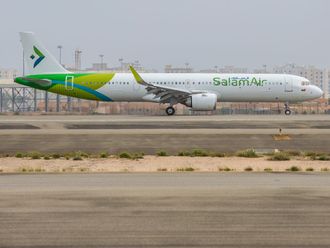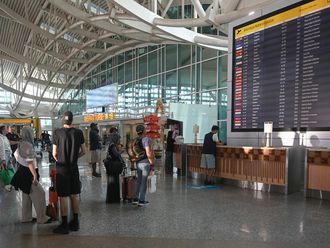Abu Dhabi: Failure on the part of Canada to arrive at an agreement with the UAE to increase the number of flights between the two countries can potentially hamper bilateral trade ties which have been growing at a steady pace in recent years.
According to figures provided to Gulf News by the UAE Ministry of Foreign Trade, the country's imports from Canada were valued at $1.18 billion (Dh4.32 billion) in 2009.
Trade between the two countries increased from $706 million in 2007 to $1.54 billion in 2008.
Yesterday, the UAE's Ambassador to Canada Mohammad Abdullah Al Ghafli in a statement released through WAM said that the UAE is disappointed that despite intensive negotiations over the last five years the UAE and Canada have been unable to arrive at an agreement on expanding the number of flights between the two countries.
"It is unfortunate that this process has been so protracted and frustrating. The UAE entered negotiations in good faith on the understanding that a solution would be reached and that constructive ideas would be brought to the negotiating table," Al Ghafli said in reference to UAE-Canadian airline negotiations.
"The fact that this has not come about undoubtedly affects the bilateral relationship. With 27,000 Canadians living in the UAE, and a significant trade relationship as the UAE is Canada's largest trade partner in the Middle East and North Africa with bilateral trade figures of over $1.5 billion, of which 95 per cent is Canadian exports as well as 200 Canadian companies active in the UAE today, six flights per week do not service the economic needs of both countries or the potential for growth," the ambassador said.
According to a Canadian local media report, Dubai-based carrier Emirates and Abu Dhabi-based Etihad Airways were seeking clearance for daily flights between Toronto and the UAE, up from the current three apiece each week. The two carriers were also seeking direct flights to the UAE from Calgary and Vancouver.
Officials at the Canadian Embassy in Abu Dhabi could not be reached for comment. Emirates and Etihad declined to comment on the issue.
Saj Ahmad, a London-based aviation analyst, told Gulf News by email that the Canadian authorities have been complaining for long about Emirates being a protected entity while effectively doing the same for Air Canada by not opening up further competition to the likes of Emirates and Etihad.
"This seemingly position of double standards is not one that is palatable, particularly since the UAE is the biggest Middle Eastern trading partner for Canada," he added.
According to Ahmad, Canada "has to realise that global competition is a good thing for consumers."
He said that "protecting Air Canada's interests reduces consumers' choice." He added that it would be easy to see why the UAE "has been infuriated by Canadian reluctance to move forward." For him, the underlying problem is "Air Canada's reluctance or inability to service the GCC and UAE, for which neither the UAE nor Emirates can be blamed."
Military camp to be shut
The UAE will close a military camp near Dubai used by Canadian troops, a UAE source said yesterday, in an escalation of a dispute over landing rights.
The source said the agreement allowing Canada to use the airbase had expired in June. It was extended to September at Canada's request.
"In the spirit of goodwill, the UAE went ahead and gave them the extension. The MoU has now expired and that is that," the source said.
According to Canadian daily Globe and Mail, Canada is now "preparing to relocate forces from the UAE to somewhere such as Cyprus rather to give in to what it considers unreasonable demands."
— Reuters











